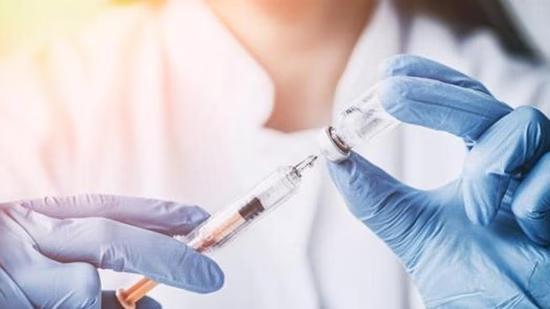
Russia to Start Human Trials for AI-Made Cancer Vaccine
In a breakthrough development in the field of cancer research, Russia’s Gamaleya Centre is set to begin human trials for a personalized mRNA vaccine for melanoma by September-October 2025. This vaccine is a game-changer in the fight against cancer, as it uses artificial intelligence (AI) to teach the immune system to fight cancer cells.
The vaccine, which is tailored using AI, analyzes a patient’s tumour DNA and creates the vaccine in approximately a week. This rapid turnaround time is a significant improvement over traditional vaccine development processes, which can take years. The preclinical results of the vaccine look promising, with researchers stating that it slowed down tumour growth.
The development of this AI-made cancer vaccine is a testament to the power of innovative technologies in the fight against cancer. Cancer is a leading cause of death worldwide, and new treatments are desperately needed to improve patient outcomes. The use of AI in vaccine development has the potential to revolutionize the way we approach cancer treatment, offering a more personalized and effective approach.
The Gamaleya Centre, which is a leading research institute in Russia, has a reputation for developing innovative vaccines. The centre’s previous work on the Sputnik V vaccine, which was developed in response to the COVID-19 pandemic, has been widely praised for its effectiveness and rapid development.
The AI-made cancer vaccine uses a novel approach to fight cancer. Instead of using traditional vaccines, which target specific proteins on the surface of cancer cells, this vaccine targets the genetic material inside the cells. This allows the vaccine to target multiple types of cancer simultaneously, making it a more effective treatment option.
The vaccine works by identifying specific genetic mutations in a patient’s tumour DNA and using this information to create a personalized vaccine. The vaccine is then administered to the patient, where it teaches the immune system to recognize and attack cancer cells.
The preclinical results of the vaccine are promising, with researchers stating that it slowed down tumour growth in animal models. The vaccine also showed a strong immune response, with the immune system recognizing and attacking cancer cells.
The use of AI in vaccine development has the potential to revolutionize the way we approach cancer treatment. AI can quickly analyze large amounts of data and identify patterns that may not be visible to human researchers. This allows AI to identify potential targets for vaccines and develop personalized treatments for patients.
The development of this AI-made cancer vaccine is also significant because it highlights the potential of Russia’s research institutions in the field of biotechnology. Russia has a long history of innovation in biotechnology, and the Gamaleya Centre’s work on this vaccine is a testament to the country’s commitment to developing new treatments for cancer.
The human trials for the AI-made cancer vaccine are set to begin in September-October 2025, with the centre planning to enroll a small group of patients in the study. The trial will assess the safety and efficacy of the vaccine, as well as its ability to slow down tumour growth.
The development of this AI-made cancer vaccine is a significant step forward in the fight against cancer. With its rapid turnaround time and personalized approach, this vaccine has the potential to revolutionize the way we approach cancer treatment. As the human trials begin, we can expect to see more developments in the coming months.






